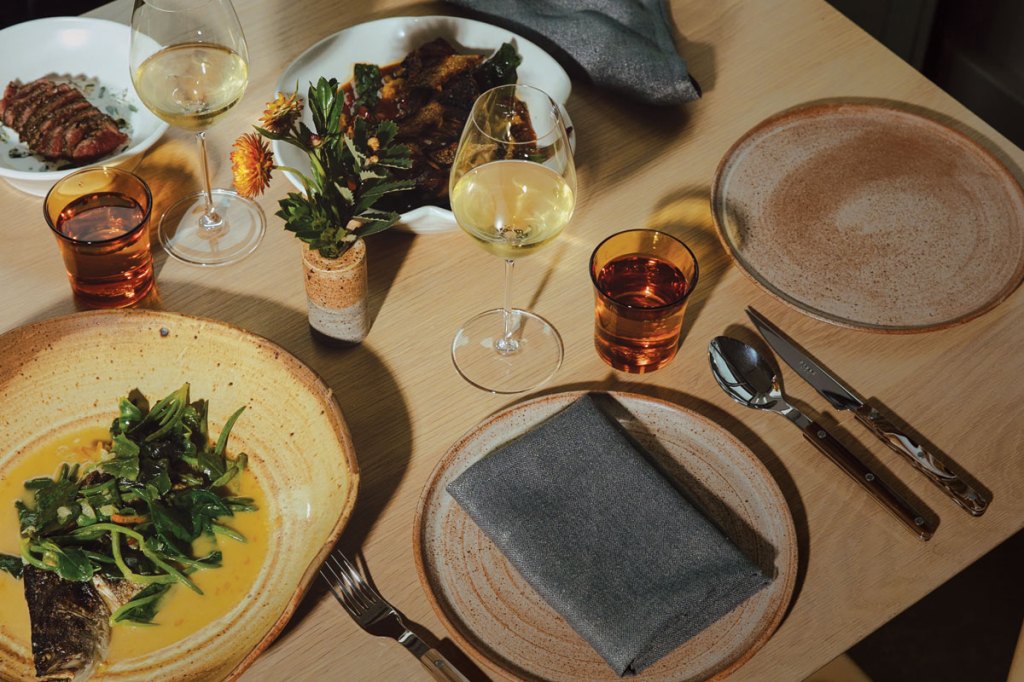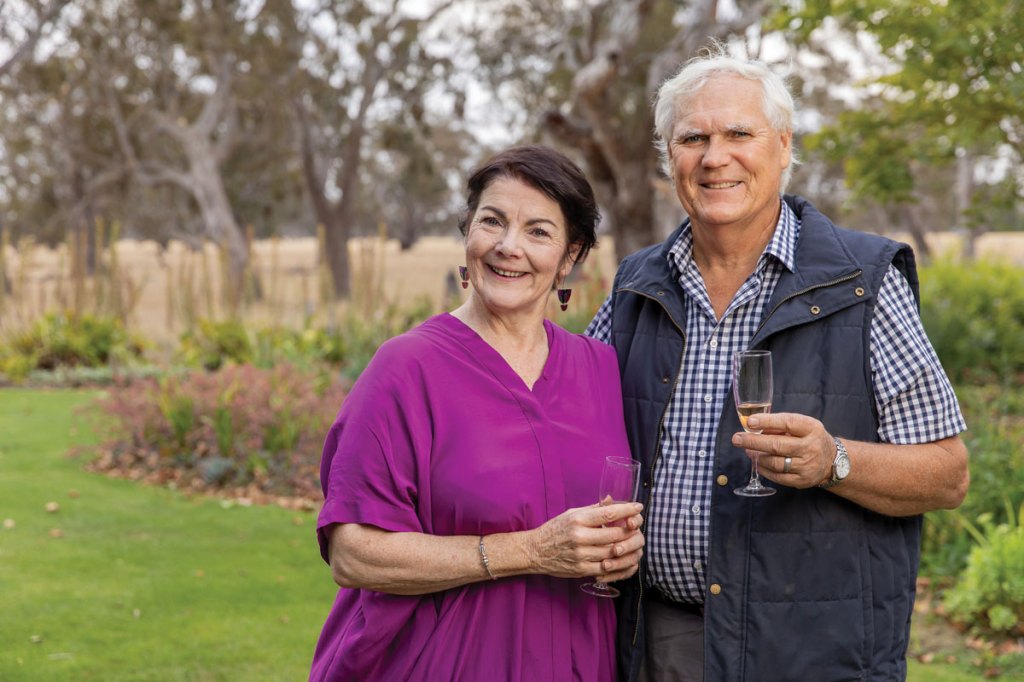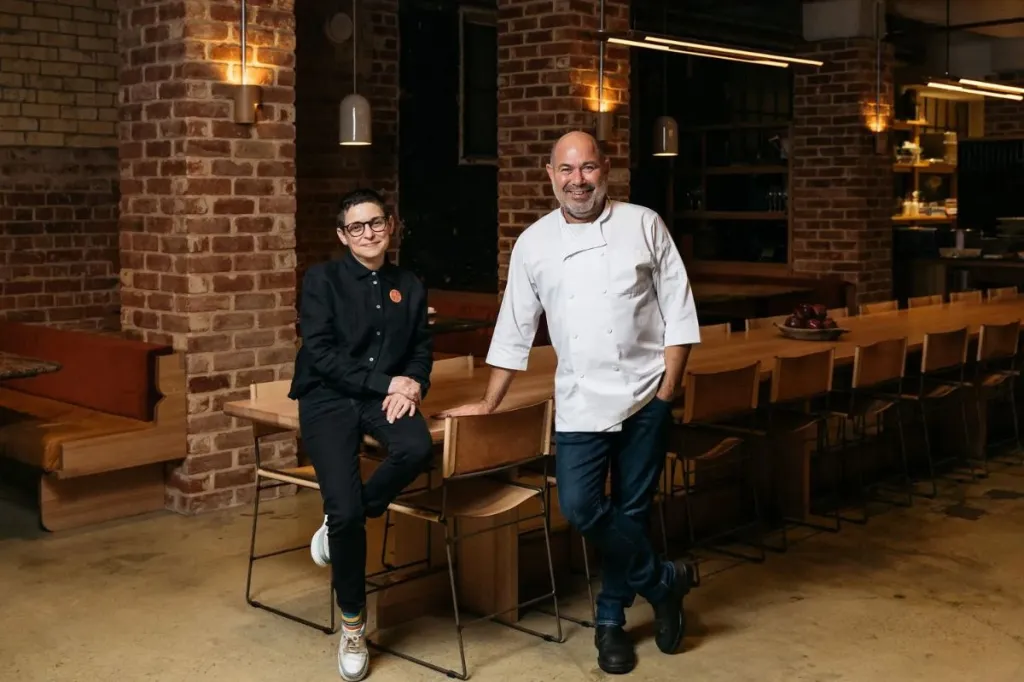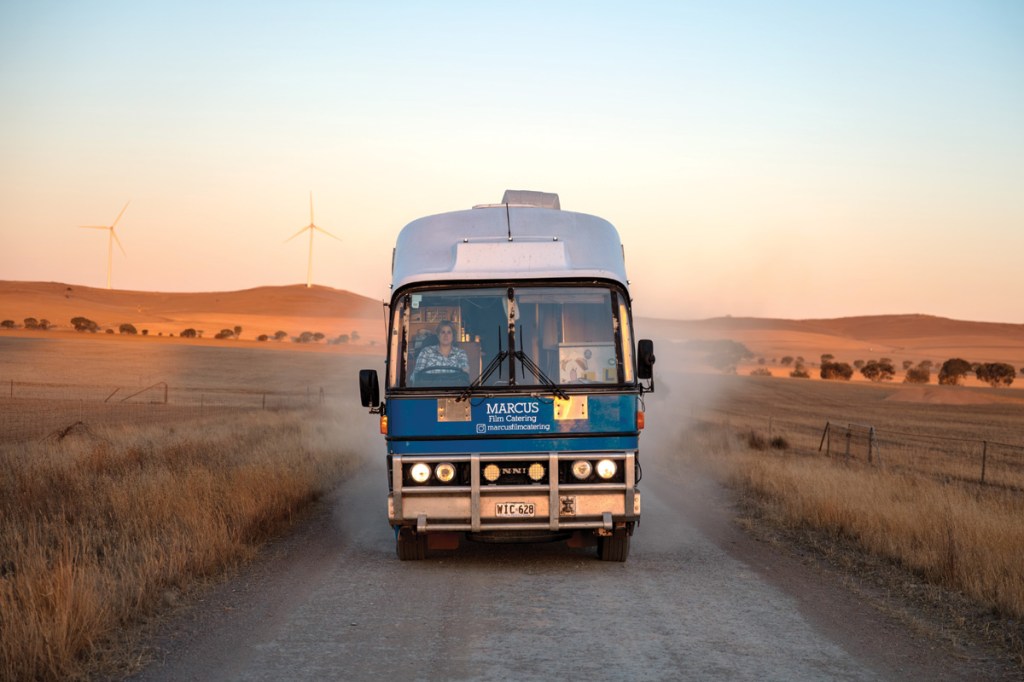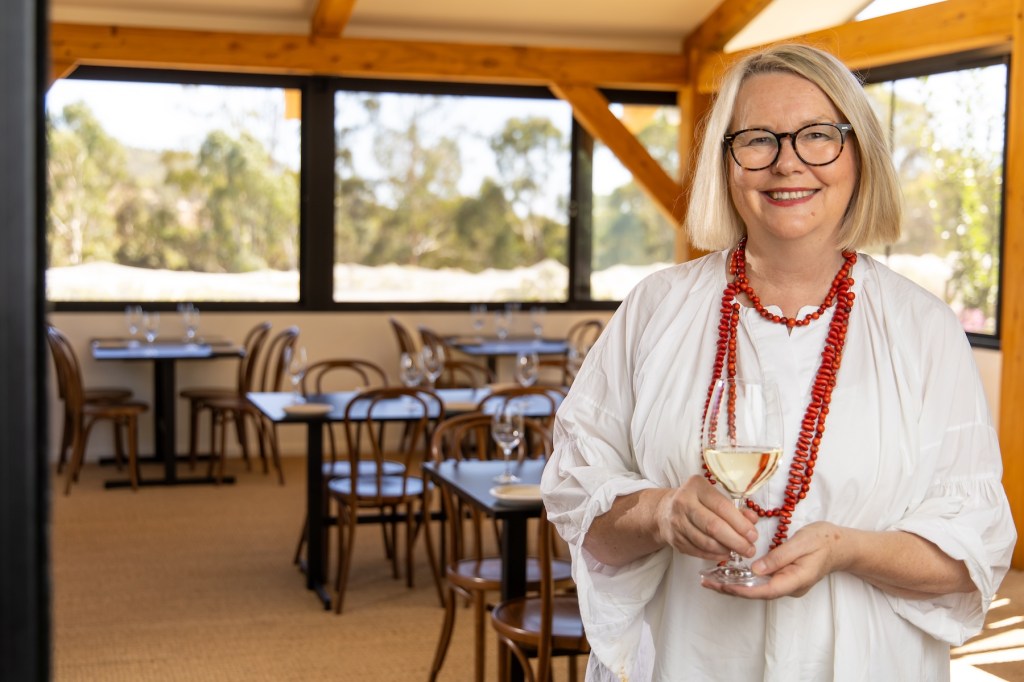At home with theatre producers Torben and Richelle Brookman
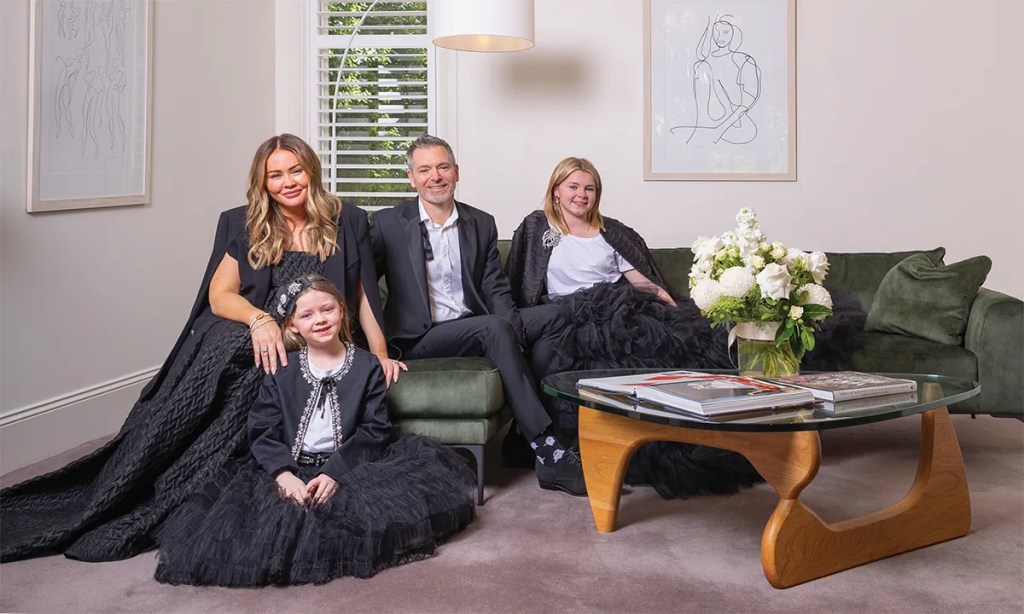
Step inside the beautiful home of Torben and Richelle Brookman, whose Adelaide-based global entertainment company is one of many ventures run by this creative couple. They discuss all things musical theatre, including their dedication to fostering South Australian arts practitioners.
Operating a global entertainment company from Adelaide was never going to be easy, but Torben and Richelle Brookman wouldn’t have it any other way.
The couple co-owns GWB Entertainment, an international company that produces and presents mega musicals such as West Side Story, Cats, Jesus Christ Superstar, Matilda The Musical and Phantom of the Opera.
Torben and Richelle run the Australian arm of the business while their co-owners, Paul Griffin and Gareth Williams, are based in GWB’s London office.
This long-distance arrangement is compounded by the fact that the company’s large-scale productions tour extensively throughout Asia, culminating in a business that is a cultural, logistical, global and theatrical juggernaut.
Differing time zones mean that Torben and Richelle often finish their work day here at 5.30pm, then prepare for late-night phone calls and meetings once London wakes up.
“It’s a lot, but we manage,” Richelle says. “It’s always a juggle, but we try with limited success to keep the evening calls to Monday, Tuesday and Thursday, and we keep Wednesday and Friday evenings free. It doesn’t always work, but we try.”
On top of the productions, Torben and Richelle also run their own performing arts school from the GWB headquarters in Mile End, as well as managing the historic Queen’s Theatre in the city.
These are their two “passion projects”, which allow this creative duo to give back to an industry that has given them so much over the years.

With such demanding workloads, it helps that Torben and Richelle work well as a team both at GWB and on the home front with daughters, Mietta, 15, and Gigi, seven.
Like her creative parents, Mietta looked set for a life in the arts, becoming a dancer and making it through to auditions with the Australian Ballet School, until life took an unexpected turn.
“We encouraged her to take up some form of hobby outside of the performing arts, just because we knew she was always in Mum and Dad’s world and we thought it would be a healthy alternative,” says Richelle, who also trained in dance to a very high level and taught for many years.
“She ended up going to a diving ‘come and try’ day at the SA Aquatic and Leisure Centre where an Olympic coach just happened to be watching. I suppose it’s that thing of the dancer’s pointed feet and lovely lines, and before we knew it, we got a letter and she is now in a high-performance program under Diving Australia and has just won a state award.
“It’s gone from a hobby, to another high-performance passion, so we had to make a decision. We juggled 16 hours of diving training plus dancing last year, so Mietta made the call at the beginning of this year to stick with diving and give up the dancing. It’s an all or nothing thing.”
The talented teenager has nine training sessions a week starting at 6am at Marion, while Torben and Richelle’s younger daughter Gigi’s co-curriculars include piano, dance and gymnastics.
An organising calendar stuck to the fridge in the family kitchen gives a visual insight into the weekly commitments needed to keep this Brookman show on the road, and Richelle says the best approach is to “divide and conquer” – she does the early morning diving runs, while Torben gets Gigi to school.
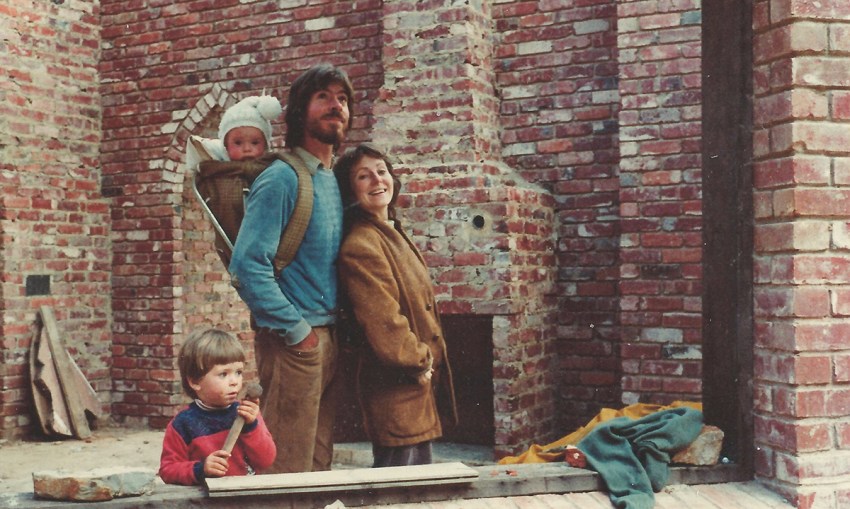
You might like
The family moved into their beautiful St Georges home a year ago and since then Richelle has added layers of her own unique sense of style. Each room reflects the couple’s theatrical influences, musical backgrounds and, in particular, Richelle’s artistic eye for meaningful pieces.
An old wooden Pinocchio puppet greets guests on the hallway table and sits atop a bulging scrapbook full of old theatre tickets and other ephemera – both are artefacts purchased by Richelle from Scammell Auctions.
“I love the scrapbook because it’s not just a magazine from the time, it’s someone’s personal experiences; it’s like a snapshot into someone’s life and their interests and passions from years ago,” says Richelle. “I think I was the only one bidding but I just loved it.”
Richelle also has a knack for repurposing second hand, rustic furniture. On display is an old mirror that has been laid flat across a stand to create a table. She has also used old wooden doors placed across two ladders to create a clothes rack in Mietta’s bedroom, and a sideboard in the living room has been created from old doors and trestle stands.
“I like the thought of finding something that used to have one purpose and then giving it another; eclectic pieces, as opposed to buying a new piece of furniture.”
Other heartfelt pieces include a container full of pianola rolls that once belonged to Torben’s grandparents, huge black and white framed photographs of the couple from various opening nights, plus a collection of old suitcases dotted around the place and found at one of Richelle’s favourite homewares stores, Haven in the Hills.
It is a household filled with loved and special treasures, collected across the years since Torben and Richelle first met through mutual friends in Sydney in 2003.

At the time, Richelle had given up pursuing a career in dance to study a teaching degree in law and economics and took a “real job” as a para-legal in a Sydney law firm, encouraged by her mum, who was a single parent.
“Mum was always supportive of my dancing, but I recognised that as a single parent she had a desire for me to get a practical job, a safe job, a real job,” Richelle says. “I felt a lot of pressure, not that I blame Mum, because I understand where that came from, but I didn’t have the confidence to do my own thing and delve into the arts and I certainly didn’t have the family in the arts already.”
Torben, on the other hand, was born into arts royalty. His father is Rob Brookman AM, one of Australia’s most respected and experienced arts executives and a former Adelaide Festival executive director. His mother is playwright Verity Laughton, who most recently worked on the stage adaptation of The Dictionary of Lost Words for the State Theatre Company of South Australia.
Torben’s younger brother, Geordie, is an award-winning theatre director and former artistic director of the State Theatre Company of SA, while his youngest brother, Kit, is a London-based playwright and director.
Torben says he had an unconventional childhood, raised on a 30-acre block of land in Kangarilla, south of Adelaide, which Rob and Verity purchased with two other couples in the 1970s. Each built their own family home on the land and raised their children in the rural surrounds; Torben was the eldest of his “farm brothers and sisters” as he calls them.
“It was along the lines of a commune, but not a commune,” he says. “It was a very creative upbringing, in a way, because the other two families were also involved in the arts.
“Glen Ash and Janet Ayliffe were both artists and Margie Sheppard was an artist, while her husband Andrew was an accountant. There was always that sense of creativity, of things happening and people creating things, which was nice. Certainly, their idea was to establish a self-sustaining property that continues to this day, all three couples still live up there.”
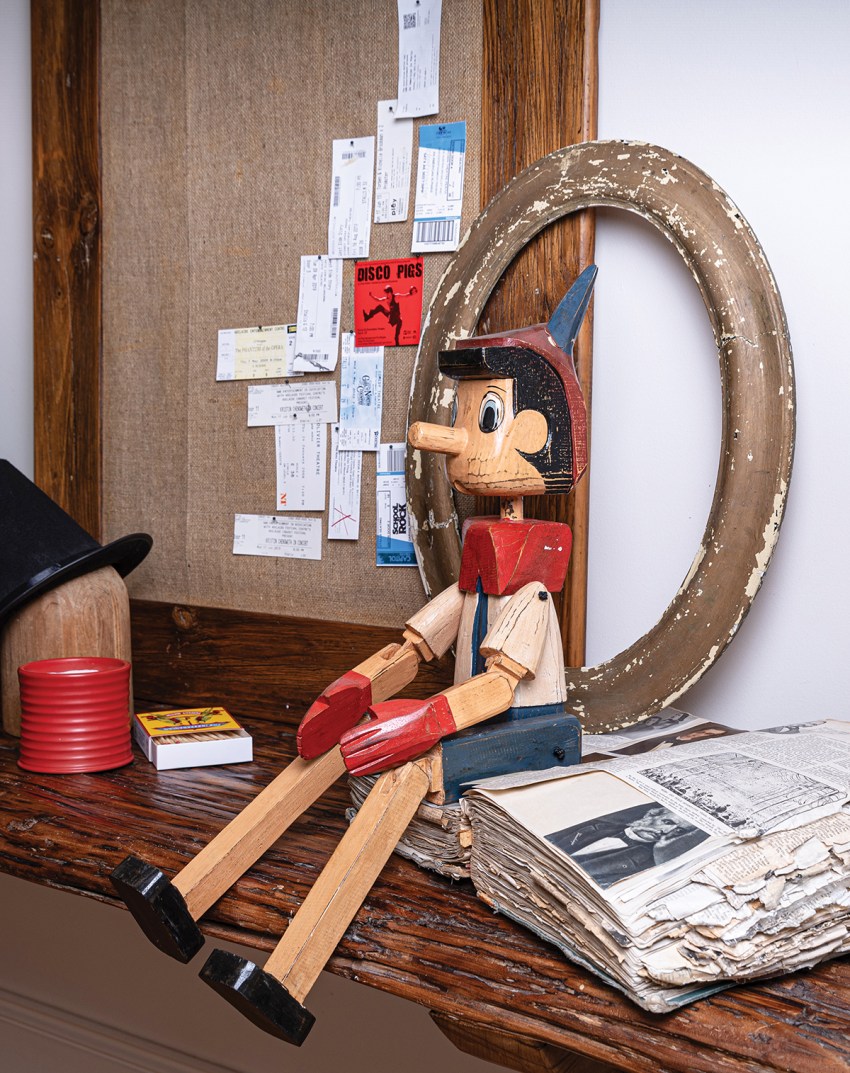
As a child, Torben loved sport and had no desire to follow his parents into the arts, even though he’d often end up on stage as part of some touring production that his father was involved in.
“Even though Mum and Dad worked in the arts as a job, I never really saw it as a job. I was always going to do a ‘proper’ job,” Torben laughs. “Most of my life I grew up being really focused on sport, whether it was tennis or athletics and triathlons.
“Towards the latter part of school, my two go-to jobs were tennis coaching and doing anything that needed doing in the theatre, whether it was front of house, the box office, working as crew. So, that was my employment through the end of high school and all through university, but theatre was never the long-term plan.”
After studying a science degree, Torben was set to begin his Honours in exercise physiology when an opportunity to work at the WOMADelaide Festival in 1999 proved pivotal.
As an operations assistant, Torben was immersed in the dynamic and exciting world of world music and international artists, helping book flights and other on-the-ground logistics.
As the day approached for the young student to head back to university, into a laboratory where he says he would have been testing a hypothesis largely on his own, Torben decided to put the science on hold.
“I wanted to meet all these artists I’d been talking to and see what this event looked like, and just dive into this melting pot of music and passionate people,” he says. “I like to be around creative people, but I am an introverted-extrovert, if that makes sense. I don’t necessarily like to be the centre of attention, but I like being around things that are happening.”
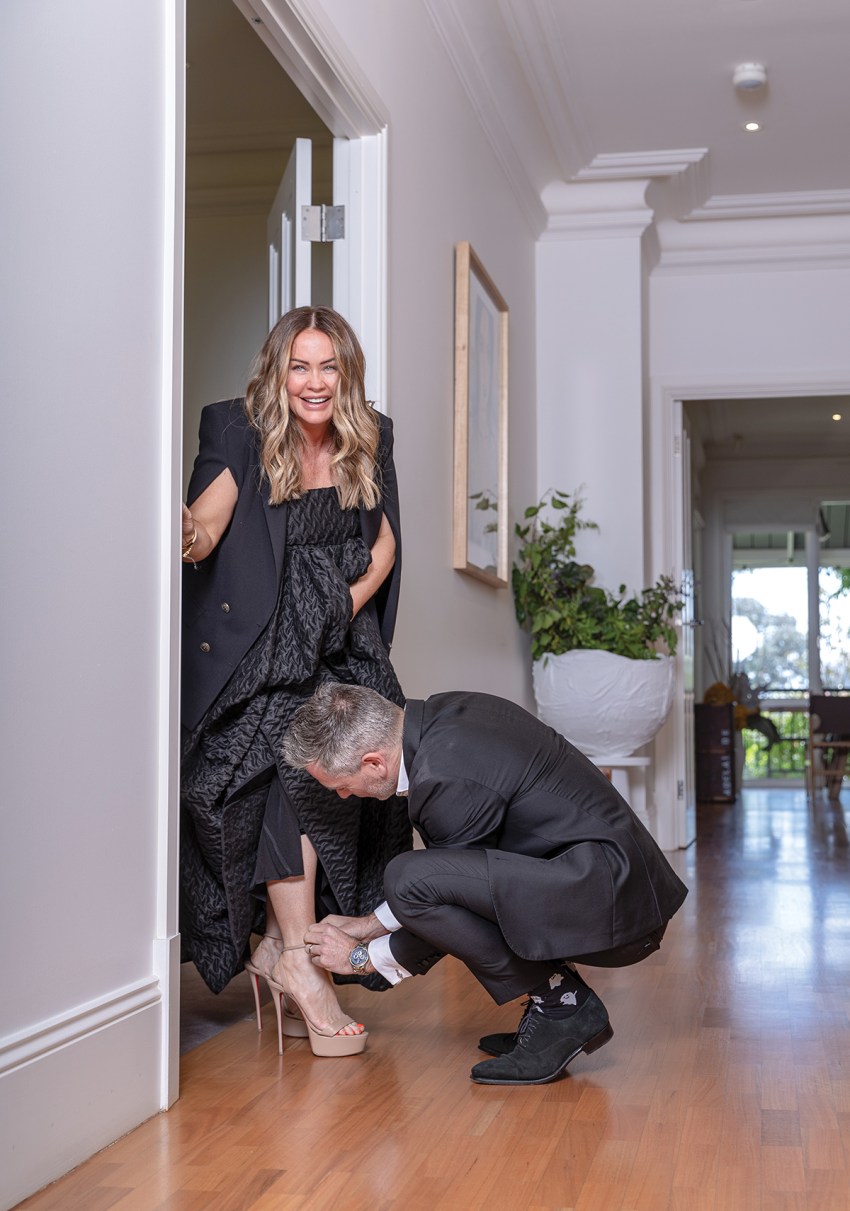
After that, Torben threw himself into any job in the arts just for the experience, including a gig at the Moomba Festival in Melbourne and working on the New Year’s Eve ceremonies in Sydney in 2001. Later that year, he secured a job with musical theatre star Andrew Lloyd Webber’s The Really Useful Group.
It was an important career stepping-stone that opened the doors to the Asian market for Torben, who worked as a production assistant, touring musical theatre shows through Asia and the Middle East. It was his “baptism of fire” and he forged important industry relationships that exist to this day.
It was around this time that Torben and Richelle met at a friend’s barbecue in Sydney and Richelle remembers that they “talked and talked for hours”. She was fascinated to hear about his exciting life, touring the world with a job in the arts.
“It sounds a bit corny, but I’m so grateful that I met not only Torben but the whole Brookman family, because that gave me the ability to realise that I could actually work in the arts,” she says.
Subscribe for updates
“I remember the first time I had dinner with the Brookman family, which was half-exciting and half-terrifying, because they were all around the table and talking about plays that were going on, as Rob was heading up the Sydney Theatre Company, and Geordie and Verity were probably writing something, Kit was still at school, but into acting, and Torben was producing in Asia and the Middle East, and it was both daunting and really exciting.
“I think for a lot of young people you think there are only jobs on stage in the arts. Unless you come from an arts family, you don’t understand what a company manager does, or a stage manager or a producer.”
The couple married in 2004 and by then Richelle realised her talents were transferable into the arts world. She secured a “foot in the door” job at Sydney’s Belvoir St Theatre which was then headed up by former Adelaide Festival directors Rachel Healy and Neil Armfield.
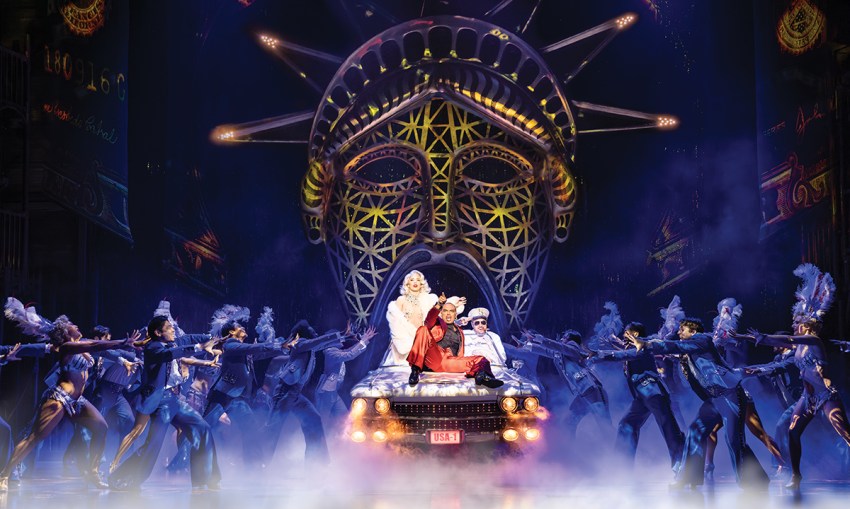
Richelle then jumped at the chance to work alongside Torben at The Really Useful Group and the couple travelled through Asia together for almost five years, touring shows such as Phantom of the Opera and Cats.
Their contact base and know-how across the Asian market grew and, unknowingly, the entrepreneurial young couple was laying the groundwork for what is today GWB Entertainment.
In the downtimes between their big shows for The Really Useful Group, the couple began to produce and present their own shows working with illusionist and magician Phillipe Genty, as an example, on tours in Hong Kong, Taiwan and Macau.
“We knew a lot of the key people across Asia and had built up these relationships over many years,” Torben says. “We had also cultivated a lot of trust and respect in that time which is important in a market like China where you need to understand cultural sensitivities.”
The couple first worked with their GWB co-owners Gareth and Paul when they joined forces to present Jesus Christ Superstar in Seoul in front of 6000 people in 2008. That led to the formation of GWB Entertainment the year after.
In 2017, after operating between Adelaide and Sydney for a number of years, Torben and Richelle moved back to Adelaide to raise their children and run their business. The couple opened an office in North Adelaide before securing the warehouse space in Mile End in 2018, where they also run a dance wear store, The Stage Shop.
The decision to create their own dance and performing arts school happened “organically” from there, Richelle says.
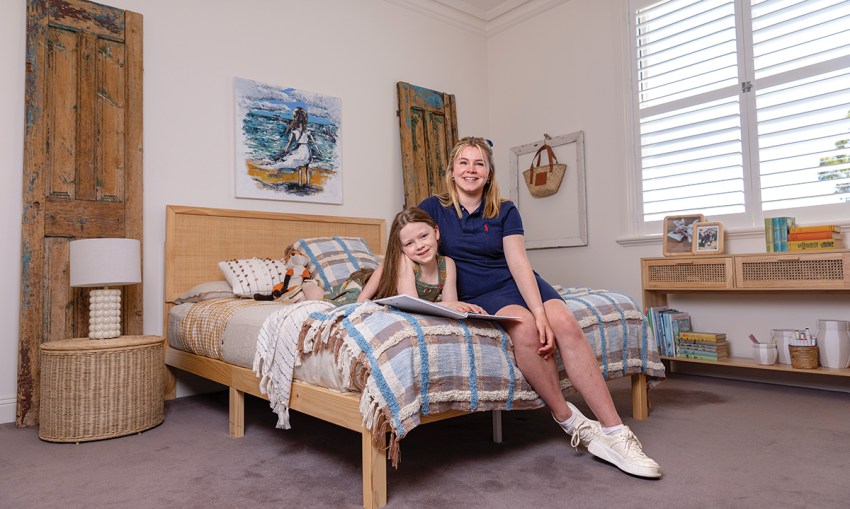
“Initially, we just thought we’d use the space for auditions or works in development, or if we had a show in town, like West Side Story, we would rehearse there,” she says. “But then we realised the potential of the space and we used our contacts to put together a great team of people to put on a dance and performing arts program.”
This year, GWB partnered with the University of Adelaide in an Australian first (“if not a world first”, says Richelle), where students can train at the GWB studios as part of a diploma in musical theatre.
“We see it as a stepping stone and the students may want to go onto the Bachelor of Musical Theatre at the Elder Conservatorium,” Torben says. “It also means we can cast graduates in some of our commercial productions, giving them real-life experience in the world of performing.”
As well as investing in an arts industry they love, Torben and Richelle see their performing arts school as creating vital new pathways for young South Australians.
“It’s a bit of a heart project for both of us because we want to make an impact locally for the next generation, getting South Australians into audition rooms alongside their cohorts from the eastern states, as well as upping the standard of our young performers,” Richelle says.
“It’s also about keeping this talent in South Australia, so young people don’t feel like they have to move interstate.
“We’re raising our family here, so we’re here by choice and we’d love to try and keep building the industry locally and building students’ capacity here.”
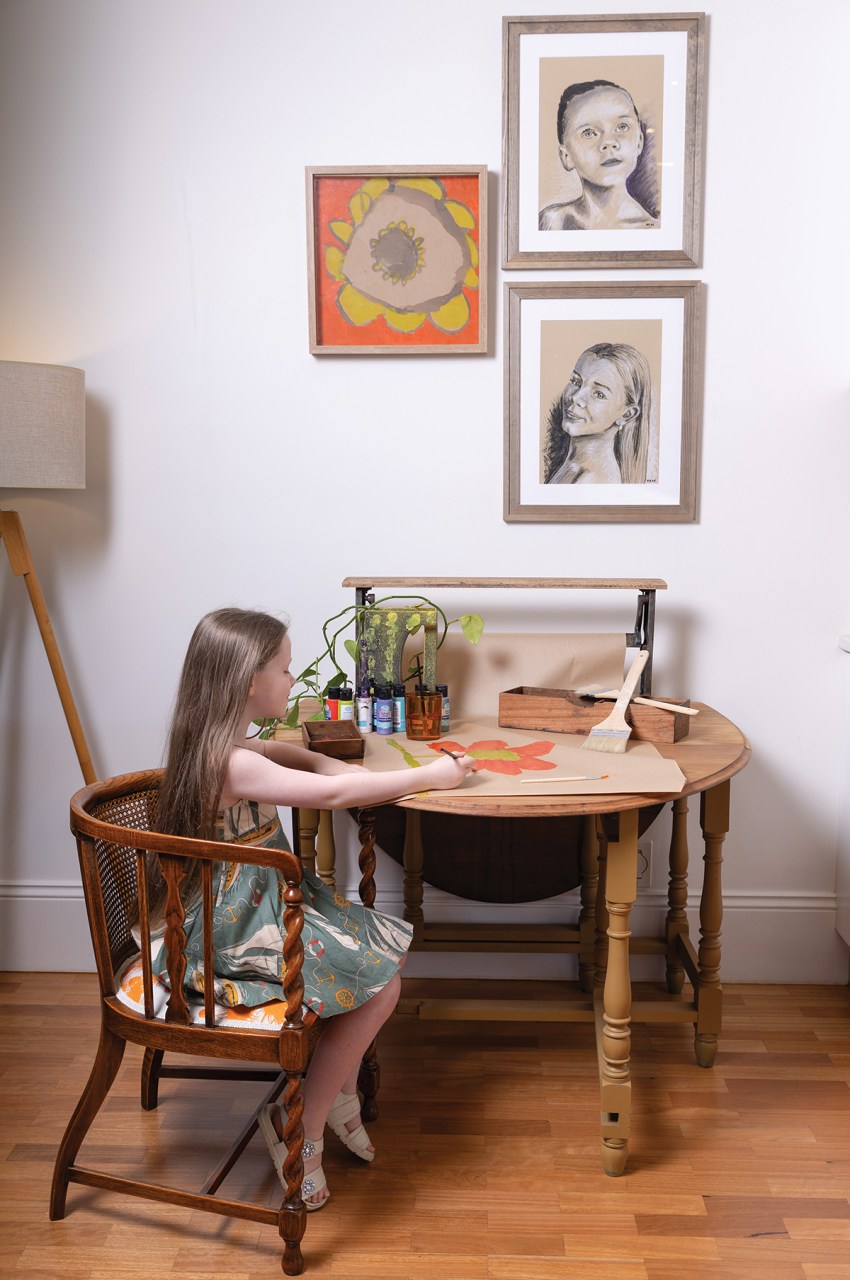
Torben says, when it comes to deciding which musical theatre shows they’ll produce, it’s always a risk: “If we knew what was going to be a hit, that would be happy days”.
“But as a company, we’re not necessarily interested in just putting on the next production of Grease, for example, that’s not what we would gravitate towards. There is a market for that, but what interests us is finding those projects that we feel have real merit from an artistic point of view, but also have interest for the public.
“Something like An American in Paris, things that have really high-quality production values, but then translate through to something that will resonate with an audience and have a deeper meaning.”
With that ethos in mind, GWB brought Miss Saigon to Adelaide early this year. The world-famous musical was produced by theatre icon Cameron Mackintosh and tells the story of a young Vietnamese woman named Kim, who is orphaned by war and forced to work in a bar run by a notorious character known as The Engineer. There she meets and falls in love with an American G.I. named Chris, but they are torn apart by the fall of Saigon.
The award-winning show has been described as one of the greatest musicals of all time, and comes from the creators of Les Misérables, Alain Boublil and Claude-Michel Schönberg.
“It is honestly one of the best productions I have ever seen,” says Torben.
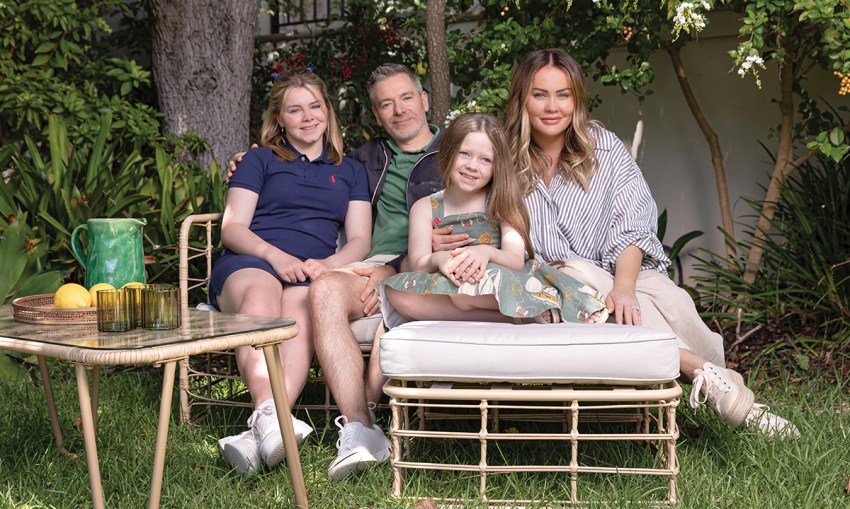
“I think Miss Saigon represents everything about why putting on musical theatre is so important. Not only is it about people having a moment to escape their day-to-day lives, there’s value in and of itself there, and there are those old adages of, in times of war or struggles, entertainment flourishes because people need another outlet for themselves. But by presenting stories on stage, whether it be plays or musicals, you can really make people think and question and Miss Saigon is a great example of that.
“This is a production that is now a classic. It was first made 30 years ago, and it’s about an incredibly troubled time in history and it makes people think and reflect on those things and, hopefully, people can strive to be better and do better.
“A deeper extension of that is the shared experience, and the shared journey, you can have as a theatre audience; those moments when there are 2000 people sitting there, and there’s absolute silence where everybody is focused on that one point. That’s an incredibly powerful experience. Those moments inspire us.” While they used to put on one show a year, GWB now has three or more shows in the market at one time. Their aim is to keep building on that, with more of a focus on producing classic plays such as Arthur Miller’s Death of a Salesman.
The week SALIFE visits, GWB are auditioning for Sunset Boulevard, Groundhog Day The Musical, as well as recasting some roles for Miss Saigon.
There is barely a minute to stop and reflect on their success or how far they have come together in this risky, glamorous and tough world of musical theatre – a world where you are only as good as your last production.
“We just want to keep building the company to a scale where we’re really supporting the industry, employing more people and helping young students find their way in the world of performing arts,” Richelle says. “I am so proud that we are building a community and supporting an ecosystem that is local but can lead to global. That’s really rewarding.”
This article first appeared in the January 2024 issue of SALIFE magazine.
